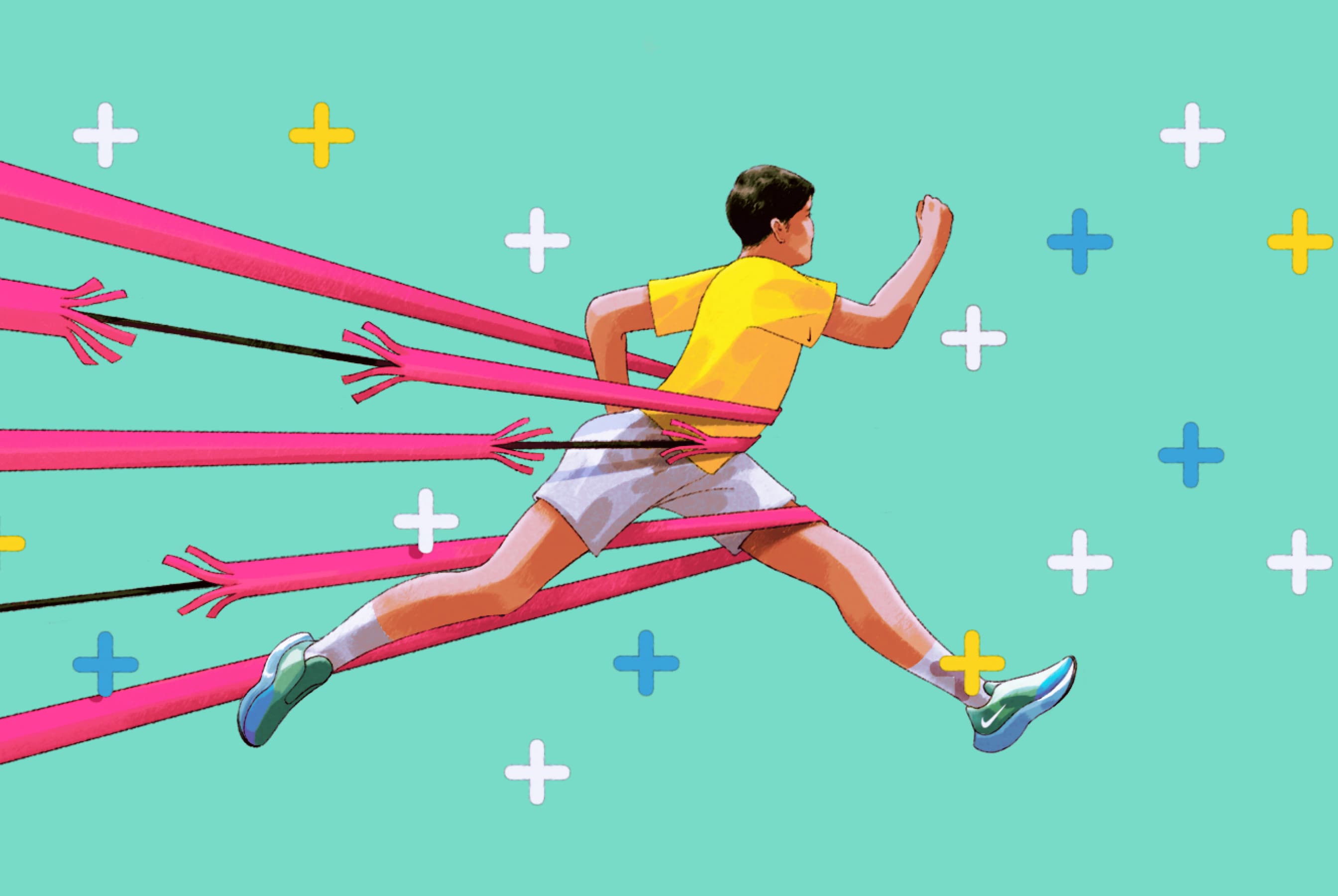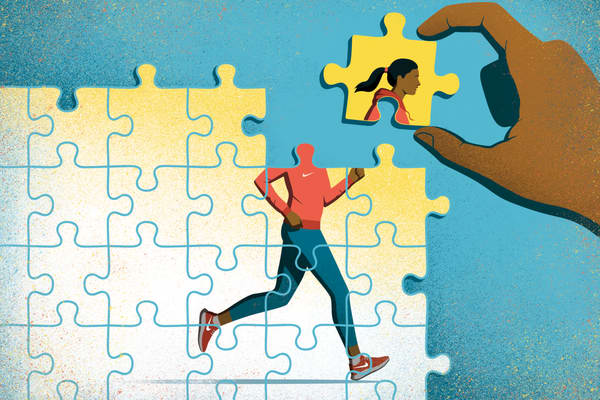Does Your Body Need a Break?
Coaching
Sore muscles aren't the only sign that you've been pushing yourself in the gym. Learn to spot these less obvious ones.
- Taking an extra recovery day (or three) can be the kind thing to do for your body when you're training hard.
- Trouble sleeping is one sign your body knows it needs some R&R—pay attention to that and other telling signals.
- Get your active recovery on with a restorative yoga routine in the NTC App.
Read on to learn more …

You probably know that you need to take it easy, maybe dust off your foam roller, when your shaking quads can barely handle a trip to the bathroom. But soreness, the result of microscopic tears to your muscle fibres from the stress of exercise (and your body's response to repair that damage), isn't the only hint that your body—and mind—might need a lax day.
Powering through soreness may make you feel all kinds of badass. Except it's not actually helping you make progress. If you're skipping out on rest and recovery, your body never has a chance to replenish energy stores and repair damaged tissues, says Andrew Watkins, a certified trainer and the director of strength and conditioning at the Sports Performance Lab. This physical stress takes a toll on your body's ability to function at its best. And if you're also dealing with mental and emotional stress (because, life), you'll have an even harder time bouncing back between workouts, leading to further deficiencies and breakdowns instead of gains.
Learning when to choose recovery over your planned workout is not only the smart, kind thing to do for yourself, it's also (thankfully!) pretty simple. "Your body is a machine and it's going to let you know when it needs to slow down", says Watkins. Yeah, soreness is a biggie. But it's just one of many signs. Keep an eye out for these less familiar cues that you're in need of some R&R.
1. Your heart rate is higher when you're doing nothing.
For most people, a normal resting heart rate is between 60 and 100 beats per minute (BPM), according to the American Heart Association. (That number may be lower for athletes, says Watkins.)
Small fluctuations are normal, but if you notice your resting heart rate is 5 or more BPM higher than usual on a consistent basis, "that means your body is working harder just to complete routine daily tasks", says Tina M. Penhollow, PhD, an associate professor in the department of exercise science and health promotion at Florida Atlantic University. Without proper rest, your heart has to work OT to repair your tissues—and that elevated heart rate is a sign it's struggling to catch up.
2. Your workouts feel tougher than usual.
If you can typically clock a cruise-y 9-minute mile but you're suddenly slogging at an 11-minute pace, or lifting 60 percent of your workload capacity feels like trying to hoist a car, that's your body throwing up a white flag.
It's not that your muscles weakened overnight (the horror!). It's that your central nervous system—the processing centre that controls responses, receiving and sending messages from other parts of the body—is overloaded, says Watkins. "If your nervous system simply hasn't recovered from the stressors it experienced the day before, your brain can't send messages to your muscles as quickly as it normally would and that can cause a lag in speed or reps to feel a little heavier".

3. You're having trouble sleeping.
"Overtraining can put your mind and body on high alert and in a constant state of restlessness", says Penhollow. And it sets you up for difficulties falling asleep, restlessness during sleep and less sleep overall, a report in Frontiers in Physiology indicates.
Considering that sleep may actually be the single most important factor in exercise recovery, according to a review published in the International Journal of Sports Medicine, prioritising it over your seventh workout of the week is actually more likely to help you progress in the long run.
4. You're cringing at the thought of working out.
Excessive training doesn't just result in physical fatigue, it can cause mental fatigue too, a study published in Current Biology found. And pushing yourself to do that workout you're dreading might set you back further. "Research shows mental fatigue is associated with impaired performance as well as lack of physical effort and stamina", says Penhollow. Giving yourself a rest day instead can help you tackle your next sesh at 100 percent.
5. Your muscles are randomly cramping.
Cramping can happen after intense physical activity that overworks the same muscles, says Penhollow. All exercise causes microtears in your muscles, but a lack of rest days leaves little time for them to repair and rebuild themselves back stronger.
Plus, all that damage makes it harder for your muscles to absorb the nutrients they need to recover and get rid of cellular waste from your workout, she adds. That can lead to spasms, a literal wake-up call that your muscles are giving up.
If you experience even one of these symptoms, take a few days of rest or switch things up with yoga or a salt bath, says Watkins, or consider a recovery run.
Noticing multiple signs of overtraining? It may be time to build in a de-load week. "That can be as simple as reducing weight loads, cutting back on run mileage or cutting down on the duration of your workout", explains Watkins. Any signs and symptoms should diminish within these time frames. (If they don't, you might want to check in with your doc.)
A true badass in the gym, after all, doesn't just have the self-discipline to push themselves. They also know when to be kind to themselves and pull back—and feel mighty proud of it.
Words: Ashley Mateo
Illustration: Mojo Wang
CHECK IT OUT
Refresh your recovery wardrobe, then regenerate with a free restorative yoga workout in the Nike Training Club App.




